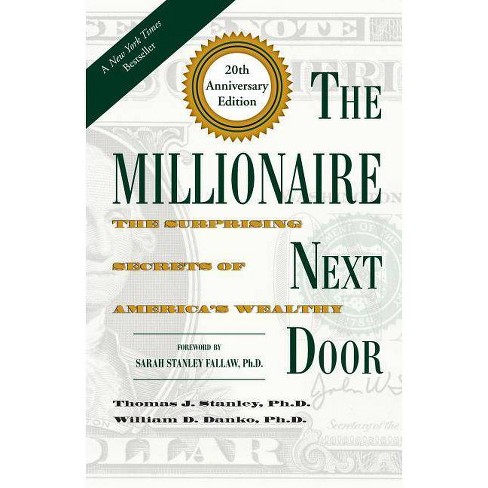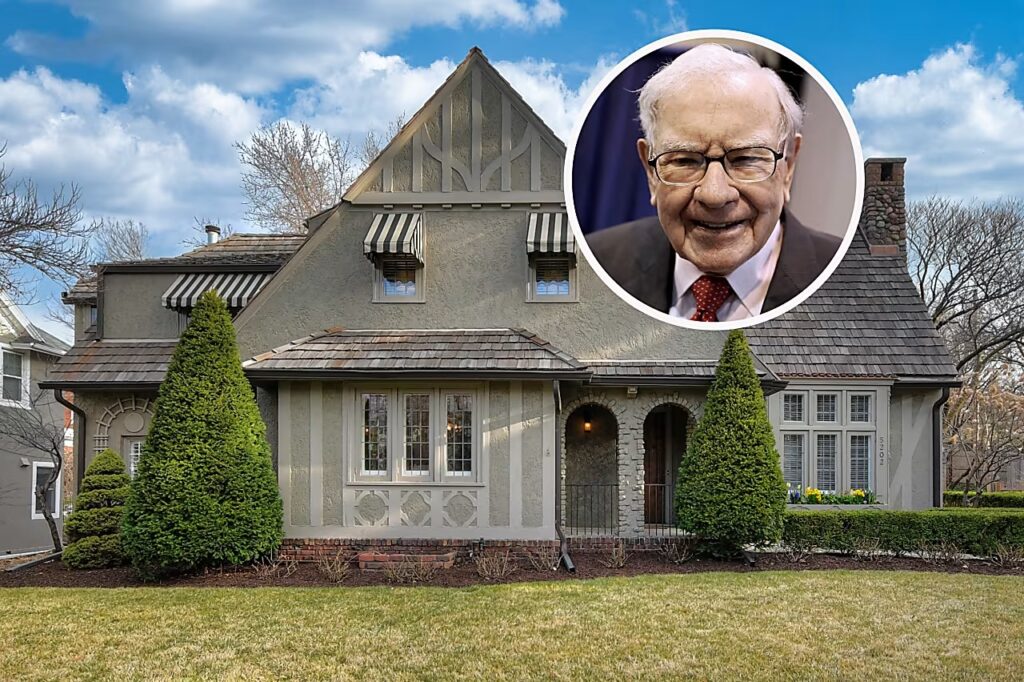
8 Lessons to the Art of Stealth Wealth
In today’s world, many people take pride in showing off their wealth and luxurious lifestyles. Social media platforms like Facebook, Snapchat, and Instagram let everyone display their fancy possessions and glamorous experiences.
Movies and TV shows often focus on wealth, featuring flashy cars and huge houses. However, the people who seem rich aren’t always what they appear to be.
In the book “The Millionaire Next Door,” author Thomas J. Stanley and his team studied wealthy households in America and made an interesting discovery:
“Twenty years ago, we started looking at how people become wealthy. At first, we surveyed individuals living in nice neighborhoods. Eventually, we found something surprising: many people in expensive homes and luxury cars actually don’t have much money. On the flip side, many wealthy people don’t live in upscale areas.”
— Thomas J. Stanley, “The Millionaire Next Door: The Surprising Secrets of America’s Wealthy”
The wealthiest households in America often live quietly and don’t show off their money. They practice what is called the “Art of Stealth Wealth.”

The principles of “stealth wealth” teach the importance of not showcasing your riches. Inspired by wealthy and successful people, here are 8 key lessons on embodying the “Art of Stealth Wealth. “
1. Live In Modest Neighborhoods.
It’s helpful to reference the quote from Thomas Stanley’s book, “The Millionaire Next Door.”
Essentially, the wealthiest individuals in America do not reside in affluent neighborhoods. Stanley’s research revealed that many owners of mansions often exhibit poor wealth accumulation habits; we might refer to them as the “faux wealthy.” What does this imply?

Many people who seem wealthy are only good at spending money, even if they earn large salaries or have inherited their wealth. Unlike their parents, who may have learned how to build and keep wealth over time, these individuals often throw their money away. Studies show that inherited wealth can disappear quickly, sometimes within just one generation! The flashy lifestyle that seems glamorous can fade quickly once the money is gone.
One smart habit of genuinely wealthy people is living in a modest neighborhood. Living around people who earn less can help you save money, whether renting or buying. It reduces the pressure to spend extravagantly to keep up with others. Many genuinely wealthy individuals own their homes outright. Imagine not having to pay rent or a mortgage! They can save or invest more than 80% of their income without those expenses. This habit allows them to build their wealth much faster over time.
“Twenty years ago we began studying how people become wealthy. Initially, we did it just as you might imagine, by surveying people in so-called upscale neighborhoods across the country. In time, we discovered something odd. Many people who live in expensive homes and drive luxury cars do not actually have much wealth. Then, we discovered something even odder: Many people who have a great deal of wealth do not even live in upscale neighborhoods.”
– Thomas J. Stanley, The Millionaire Next Door: The Surprising Secrets of America’s Wealthy
Living in a modest neighborhood has some advantages, especially when saving money on taxes and upkeep! For example, a large mansion can be expensive to maintain. Take Mike Tyson, the famous boxer. He once had a net worth of $400 million but ended up bankrupt because he spent way too much on a huge mansion that cost around $1.2 million to take care of each year! That’s unbelievable.
Wealthy people understand the importance of keeping their expenses down, especially when it comes to their most significant expense: their home. “Stealth Wealth” encourages people to live modestly and lower the costs of their most enormous bills.
If you need more proof, look at Warren Buffett, one of the wealthiest people in the world. He still lives in the same modest home he bought in 1958, even though he has a net worth of $80 billion! That’s a lot of money, but he chooses to live simply. Check out a picture of his house above!
“It’s easier to accumulate wealth if you don’t live in a high-status neighborhood.”
– Thomas J. Stanley, The Millionaire Next Door: The Surprising Secrets of Americas Wealthy
2. Drive Used Cars.
When we think about wealthy people, we might picture them driving fancy, expensive cars. But that’s not the case for everyone. For example, Warren Buffett, one of the wealthiest men in the world, is known for his modest lifestyle. In a BBC documentary, his daughter shared that he often buys used cars, sometimes even ones slightly damaged by hail. He gets them fixed up and continues driving them for a long time.
This idea of “stealth wealth” shows that true wealth can sometimes mean being practical instead of flashy. Many wealthy people often prefer buying used cars rather than new ones. Why? Because as soon as you drive a new car off the lot, it loses value—up to 19% right away! So, buying a brand-new car for $20,000 is only worth about $16,200 as soon as you leave the dealership. That’s a huge loss!
Let’s consider investments too. The S&P 500 Index tracks the stock market and has an average annual return of about 7%. So, losing 19% by buying a new car isn’t a smart financial move. You don’t need to be a financial expert to realize that buying new cars isn’t the best investment.
Here are some tips for buying a car wisely:
- Buy used: Save money by choosing a car that’s already been owned.
- Negotiate: Don’t settle for the first price—try to get the best deal and the lowest interest rate.
- Limit the length of your loan: Keep car loans to three years or less. If you can’t, it means you’re spending too much on a car you can’t afford.
- Pay in cash: If possible, buy the car outright to avoid paying interest.
- Keep it for a long time: Aim to keep your car for over 10 years, and start saving for your next one.
By following these tips, you can make smarter financial choices when buying a car!
3. Never Flaunt Your Salary or Net Worth.

To practice the idea of “stealth wealth,” think of poker. In poker, you don’t show all your cards. Keeping some cards hidden is wise, even if you have a winning hand like a royal flush. Why is that important?
I read a story in the Bible about King Hezekiah that perfectly illustrates this point. Hezekiah was very proud of his wealth and wanted everyone to see it. He showed visitors from Babylon everything he owned—his silver, gold, spices, and entire armory. He didn’t keep anything secret.
Later, the prophet Isaiah visited Hezekiah and asked what the visitors saw. Hezekiah admitted that he showed them everything. Isaiah then foretold that King Hezekiah’s fortunes would eventually be taken from him by theft and robbers due to his bragging, which came true. King Hezekiah’s pride led to his downfall.
The lesson here is clear: don’t reveal everything you have. It’s your business, and by being modest, you can avoid problems. Keep your salary and net worth private — these numbers are only for you and your close loved ones to know. If you ever mention your wealth, downplay it as much as possible. By keeping your cards close to your chest, you won’t brag or invite jealousy from others. Your money is energy meant to support you and your loved ones, not something to show off.
4. Cut Unnecessary Expenses
Wealthy people know how important it is to eliminate unnecessary expenses. They carefully check their spending whenever they can. In contrast, people pretending to be wealthy often spend money on things that make them look good but ignore their spending.
Small expenses, like daily Starbucks coffee or ATM fees, may seem insignificant, but they add up. When we pay attention to these smaller costs, we become better at managing our more significant expenses, too.
The key to being smart with money is knowing your expenses. The more you know where your money is going, the better you can control it and keep it for things that truly matter.
“Great offense and poor defense translate into under accumulation of wealth.”
– Thomas J. Stanley, The Millionaire Next Door: The Surprising Secrets of Americas Wealthy
5. Bargain Shopping To Save Money

I recently read an interesting article from the New York Times titled “What the Rich Won’t Tell You.” In it, a journalist spoke with wealthy families in New York City, and I found one quote eye-opening:
“The people I talked with never bragged about spending a lot on things; instead, they happily shared stories about finding great deals on baby strollers, buying clothes at Target, and driving older cars. They even joked about how other rich people waste money on huge houses and expensive vacations—something one man called ‘massaging your toes’!”
While places like Neiman Marcus, Lord & Taylor, and Barneys are popular among some wealthy shoppers, the people interviewed didn’t shop there as often as someone pretending to be rich or even the average middle-class person. Instead, wealthy people enjoy finding bargains and getting the best prices on what they buy.
In Thomas J. Stanley’s book The Millionaire Next Door, researchers examined how real wealthy individuals spend their money. They discovered important differences between self-made millionaires and those who inherited their wealth. Self-made millionaires are often better at finding great deals. For example, the average self-made millionaire spends around $360 on a suit, while someone who inherited their wealth might pay around $600 for the same thing.
The big lesson here is that to build and keep your wealth, you should focus on saving money. And when you do spend, it’s wise to bargain shop to get the best value for your hard-earned cash.
“I am not impressed with what people own. But I’m impressed with what they achieve. I’m proud to be a physician. Always strive to be the best in your field…. Don’t chase money. If you are the best in your field, money will find you.”
– Thomas J. Stanley, The Millionaire Next Door: The Surprising Secrets of Americas Wealthy
6. Buy Very High-Quality Goods (And Keep Them Forever)
There’s a big difference between the truly wealthy and those who pretend to be rich when spending money. The genuine rich know how to find good deals but also understand the value of buying high-quality items and keeping them for a very long time.
While many middle-class or less wealthy individuals may buy cheaper, disposable items, the genuinely rich prefer to invest in one high-quality product that will last. This idea is summed up in the phrase “BIFL,” which stands for “Buy It For Life.” There’s even a subreddit dedicated to this concept where people share their favorite long-lasting products.
Examples of items to buy for life include winter jackets, suits, luggage, home appliances, and boots. The wealthy tend to choose high-quality brands that may be more expensive upfront but provide excellent value over time because they’re well-made and durable. Patagonia is a popular brand known for its quality, and it is famous for using exceptional materials and strict quality control. Their jackets may cost more than typical ones but also last much longer.
In summary, when it comes to buying things, the genuine rich focus on finding items made of high-quality materials that will stand the test of time. Additionally, they usually prefer products that have simple, minimal logos rather than flashy or showy branding.
7. They Work on Their Financial Fitness (And Keep It to Themselves)

Have you ever seen pictures of superfit models posing with junk food and thought, “There’s no way they ate that!” Just like in this Instagram post, the truth is they probably didn’t eat it—or if they did, it’s not something they usually indulge in.
The genuine wealthy people are a lot like that. They don’t spend money carelessly. Instead, they keep a close eye on how much they earn and how much they pay daily. They make it a habit to practice financial fitness, save a lot, and grow their wealth.
On the other hand, those who pretend to be wealthy often spend a lot without knowing how much they make or save. They go with the flow and hope for the best. Meanwhile, the genuinely rich are always aware of their finances. They focus on keeping their spending in check while working hard to increase their income. And they don’t feel the need to brag about it.
Rich people earn money in multiple ways and invest it, allowing their money to grow and work for them. In contrast, those who fake wealth often spend without care, waiting for a big inheritance or a high-paying job to keep them afloat.
Improving our financial fitness is a crucial habit. We must play a high-stakes game: focusing on making money through various sources while saving, investing, and cutting back on unnecessary expenses. We can all learn this valuable lesson from genuinely wealthy people.
“Whatever your income, always live below your means.”
“Wealth is more often the result of a lifestyle of hard work, perseverance, planning, and, most of all, self-discipline.”
“The foundation stone of wealth accumulation is defense, and this defense should be anchored by budgeting and planning.”
– Thomas J. Stanley, The Millionaire Next Door: The Surprising Secrets of Americas Wealthy
8. Aim for Freedom, Not Luxury: Living a Simple Life with Wealth

One important lesson we can learn from genuinely wealthy people in America is that they work hard, value integrity, and aim for freedom instead of just luxury. You won’t see these wealthy individuals showing off their extravagant lifestyles on social media like Facebook or Instagram.
Instead, they live ordinary lives. They buy their groceries at Target and Walmart, look for bargain deals on used cars, negotiate better interest rates on their credit cards, and focus on saving and investing. They don’t feel the need to act like what society expects wealthy people to be. They blend in with the average middle class and don’t seek attention.
Many of them also give to charity, often without anyone knowing. They understand that money doesn’t guarantee happiness; to them, it’s just a tool to help them achieve their goals. They aren’t trying to impress anyone; instead, they work hard to gain the freedom to not rely on a paycheck. They let their money work for them instead.
“We define wealthy differently. We do not define wealthy, affluent, or rich in terms of material possessions. Many people who display a high-consumption lifestyle have little or no investments, appreciable assets, income-producing assets, common stocks, bonds, private businesses, oil/gas rights, or timberland. Conversely, those people whom we define as being wealthy get much more pleasure from owning substantial amounts of appreciable assets than from displaying a high-consumption lifestyle.”
– Thomas J. Stanley, The Millionaire Next Door
The most important lesson we can learn from the quiet and discreet affluent, the truly “stealthy wealthy” individuals in America, is that building wealth should focus on achieving freedom and practicing humble consumption.




